An itchy throat and persistent cough can be incredibly bothersome and disruptive to daily life. Various factors can contribute to these symptoms. Understanding the common causes of an itchy throat and cough can help identify the appropriate prevention and treatment strategies. This article will explore 12 common causes of itchy throat and cough with treatment. By recognizing these causes, you can take steps to prevent and alleviate these uncomfortable symptoms.

12 Common Causes of Itchy Throat and Cough
1. Allergies
Allergies are one of the most prevalent causes of an itchy throat and cough. When the body encounters an allergen (such as pollen, dust mites, or pet dander), it triggers an immune response, releasing histamine. This can cause inflammation and irritation in the throat and airways.
Treatment:
- Antihistamines (over-the-counter or prescription) can help alleviate symptoms by blocking the effects of histamine.
- Nasal corticosteroid sprays can reduce inflammation in the nasal passages and throat.
- Avoiding exposure to known allergens is crucial for long-term management. Consider using air purifiers, regularly cleaning, and limiting time outdoors during peak allergy seasons.
- Immunotherapy, also known as allergy shots, can help desensitize the body to specific allergens over time, providing long-lasting relief.
2. Common Cold and Flu
Viral infections like the common cold and flu can wreak havoc on the respiratory system, causing an itchy throat and cough due to inflammation and mucus production in the respiratory tract. These pesky viruses can leave you feeling miserable and struggling to find relief.
Treatment:
- Over-the-counter medications like decongestants, cough suppressants, and pain relievers can provide symptomatic relief.
- Staying hydrated and getting plenty of rest is essential for recovery and allowing your body to fight off the infection.
- Antibiotics are ineffective against viral infections and should not be used unless a secondary bacterial infection develops.
- Zinc lozenges and vitamin C supplements may help shorten the duration of cold symptoms, but their effectiveness is still debated.
3. Postnasal Drip
Postnasal drip occurs when excess mucus from the nose and sinuses drains down the back of the throat, causing irritation and triggering a cough reflex. This constant drip can be incredibly annoying and make it difficult to find relief.
Treatment:
- Decongestants and nasal sprays can help reduce mucus production and alleviate postnasal drip.
- Staying hydrated and using a humidifier can thin out mucus and make it easier to clear.
- Avoiding irritants like smoke and strong odors can also help minimize postnasal drip.
- Saline nasal rinses can help flush out excess mucus and keep nasal passages clear.
4. Acid Reflux (GERD)
Gastroesophageal reflux disease (GERD) occurs when stomach acid flows back into the esophagus. This will cause irritation and inflammation in the throat. This can lead to a persistent, nagging cough and an uncomfortable burning sensation in the chest and throat.
Treatment:
- Antacids and proton pump inhibitors (PPIs) can help reduce stomach acid production and alleviate symptoms.
- Dietary and lifestyle changes, such as avoiding trigger foods (like spicy, fried, or acidic foods), losing weight, and not lying down immediately after eating, can also be beneficial.
- In severe cases, surgery may be recommended to reinforce the valve between the stomach and esophagus.
- Elevating the head of the bed can help prevent acid reflux at night.
5. Dehydration
Dehydration can cause the throat to become dry and irritated, leading to an itchy sensation and cough. This is a common issue, especially during hot weather, strenuous exercise, or illness when fluid intake may be inadequate.
Treatment:
- Increasing fluid intake, especially water, is the primary treatment for dehydration.
- Sucking on lozenges or hard candies can stimulate saliva production and provide temporary relief.
- Avoiding diuretics like caffeine and alcohol can help prevent further dehydration.
- Electrolyte-rich beverages like sports drinks can help replenish fluids and electrolytes lost through sweating or illness.
6. Dry Air
Dry air, whether from indoor heating or outdoor conditions, can irritate the throat and trigger a cough reflex. This can be particularly problematic during the winter months when indoor heating systems are running constantly.
Treatment:
- Using a humidifier can add moisture to the air and alleviate throat irritation.
- Drinking plenty of fluids can help keep the throat moist.
- Avoiding irritants like smoke and strong odors can also help minimize throat irritation.
- Nasal saline sprays can help moisturize the nasal passages and throat.
7. Smoking and Secondhand Smoke
Inhaling smoke from cigarettes or other sources can irritate the throat and airways, leading to an itchy throat and persistent cough. Smoking is a major risk factor for numerous respiratory issues and can exacerbate existing conditions.
Treatment:
- Quitting smoking and avoiding secondhand smoke exposure are the most effective treatments.
- Over-the-counter cough suppressants and lozenges can provide temporary relief.
- Seeking support through smoking cessation programs or nicotine replacement therapy can increase the chances of successfully quitting.
- Avoiding triggers like smoke-filled environments can help prevent coughing episodes.

8. Medication Side Effects
Certain medications, such as ACE inhibitors and some chemotherapy drugs, can cause an itchy throat and cough as a side effect. While these medications are necessary for treating underlying conditions, their side effects can be frustrating and disruptive.
Treatment:
- Consulting with a healthcare provider to adjust or change medications may be necessary.
- Throat lozenges, cough suppressants, and staying hydrated can help alleviate symptoms.
- In some cases, switching to an alternative medication with fewer side effects may be an option.
- Monitoring symptoms and reporting any worsening or new side effects to your healthcare provider is essential.
9. Chronic Sinusitis
Chronic sinusitis is a long-lasting inflammation of the sinuses, which can cause postnasal drip, throat irritation, and coughing. This condition can be caused by allergies, infections, or structural abnormalities in the nasal passages.
Treatment:
- Nasal corticosteroid sprays and decongestants can help reduce inflammation and mucus production.
- Antibiotics may be prescribed if a bacterial infection is present.
- In severe cases, sinus surgery may be recommended to improve drainage and alleviate symptoms.
- Allergy testing and treatment can help identify and manage underlying allergies contributing to chronic sinusitis.
10. Asthma
Asthma is a chronic respiratory condition characterized by inflammation and narrowing of the airways, which can lead to coughing, wheezing, and shortness of breath. This condition can be triggered by various factors, including allergens, exercise, and respiratory infections.
Treatment:
- Inhaled bronchodilators and corticosteroids can help control asthma symptoms and prevent flare-ups.
- Identifying and avoiding asthma triggers is crucial for long-term management.
- In severe cases, oral or injectable corticosteroids may be necessary to bring an asthma attack under control.
- Asthma action plans developed with a healthcare provider can help manage symptoms and respond appropriately to flare-ups.
11. Vocal Cord Dysfunction
Vocal cord dysfunction (VCD) is a condition in which the vocal cords close partially or completely during inhalation. This will cause breathing difficulties and a chronic cough. This can be triggered by various factors, including exercise, stress, and exposure to irritants.
Treatment:
- Speech therapy and breathing exercises can help retrain the vocal cords and improve symptoms.
- Identifying and avoiding triggers, such as exercise or exposure to irritants, is important.
- In some cases, medications like inhaled corticosteroids or bronchodilators may be prescribed to help manage symptoms.
- Stress management techniques like meditation or yoga can help reduce the impact of stress-related triggers.
12. Chronic Obstructive Pulmonary Disease (COPD)
COPD is a progressive lung disease that causes airway obstruction and chronic coughing, often accompanied by wheezing and shortness of breath. This condition is primarily caused by long-term exposure to irritants, such as cigarette smoke or air pollution.
Treatment:
- Bronchodilators and inhaled corticosteroids can help improve airflow and reduce inflammation.
- Oxygen therapy may be necessary in severe cases to improve oxygen levels in the blood.
- Pulmonary rehabilitation and lifestyle changes, such as quitting smoking, can improve the quality of life and slow the progression of the disease.
- Lung transplantation may be an option for some patients with advanced COPD.
Tips to Prevent Itchy Throat and Cough?
1. Stay hydrated: Drinking plenty of fluids can help soothe and moisturize your throat, reducing the itchiness and irritation that can lead to coughing. Aim to drink at least 8 glasses of water a day.
2. Avoid irritants: Try to minimize your exposure to irritants such as smoke, dust, pollen, and strong chemical fumes, as these can trigger an itchy throat and cough. Use air purifiers or wear a mask if necessary.
3. Practice good hygiene: Wash your hands frequently, especially during cold and flu seasons, to prevent the spread of germs that can cause throat infections and coughing.
4. Use a humidifier: Dry air can worsen itchiness and coughing. Running a humidifier in your home can help add moisture to the air and alleviate these symptoms.
5. Gargle with warm saltwater: Dissolve half a teaspoon of salt in a glass of warm water and gargle with it several times a day. This can help reduce inflammation, soothe your throat, and relieve itchiness.
6. Avoid throat irritants: Avoid consuming spicy or acidic foods, as they can further irritate your throat. Opt for soothing foods and beverages such as warm herbal tea, honey, and broth.
7. Take over-the-counter remedies: Over-the-counter cough syrups, lozenges, and throat sprays can provide temporary relief from an itchy throat and cough. However, consult with a pharmacist or healthcare professional before using any medication.
8. Practice good respiratory hygiene: Cover your mouth and nose with a tissue or your elbow when coughing or sneezing to prevent the spread of respiratory infections and reduce irritation to your throat.
9. Manage allergies: If you have allergies, identify and avoid triggers as much as possible. Consider taking antihistamines or using nasal sprays to control your allergy symptoms and prevent throat irritation.
10. Rest and manage stress: Getting enough rest and managing stress levels can help support your immune system and reduce the likelihood of developing an itchy throat and cough. Practice relaxation techniques such as deep breathing, meditation, or yoga.
FAQs
Q: How can I tell if my itchy throat and cough are caused by allergies or a cold?
A: Allergies typically cause more persistent, year-round symptoms like itchy eyes, sneezing, and a runny nose, while colds tend to come on more suddenly and may include fever, body aches, and a more severe cough. However, the symptoms can overlap, so it’s best to consult a healthcare provider for an accurate diagnosis.
Q: Is it safe to take over-the-counter cough and cold medications for an extended period?
A: Over-the-counter medications are generally safe for short-term use, but prolonged use can lead to side effects and potential interactions with other medications. It’s best to consult a healthcare provider if your symptoms persist for more than a week or two.
Q: Can acid reflux cause a chronic cough?
A: Yes, acid reflux (GERD) is a common cause of chronic cough, especially if the cough is worse at night or after meals. The acid irritates the throat and airways, triggering a cough reflex.
Q: Can dehydration cause an itchy throat and cough?
A: Yes, dehydration can lead to a dry, irritated throat and trigger a cough reflex. Staying well-hydrated by drinking plenty of fluids can help alleviate these symptoms.
Q: How can I tell if my cough is related to asthma?
A: Asthma-related coughs are often accompanied by wheezing, shortness of breath, and tightness in the chest. If you experience these symptoms, especially after exercise or exposure to triggers like allergens or cold air, it’s important to consult a healthcare provider for proper diagnosis and treatment.
Q: Is it normal for certain medications to cause an itchy throat or cough as a side effect?
A: Yes, it’s not uncommon for certain medications, such as ACE inhibitors for high blood pressure or chemotherapy drugs, to cause throat irritation or a cough as a side effect. If these side effects become bothersome or persistent, discuss alternative options with your healthcare provider.
Q: Can vocal cord dysfunction be cured?
A: While vocal cord dysfunction cannot be cured, the symptoms can often be managed through speech therapy, breathing exercises, and avoiding triggers. With proper treatment and management, many individuals with VCD can lead relatively normal lives.
By addressing these common questions, individuals can gain a better understanding of the potential causes and treatments for itchy throat and cough, as well as when to seek medical attention for persistent or severe symptoms.

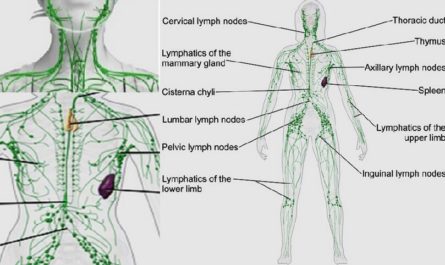
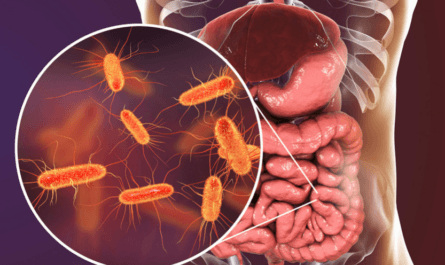

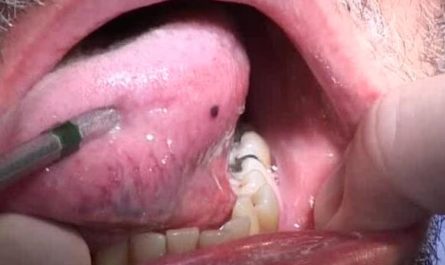
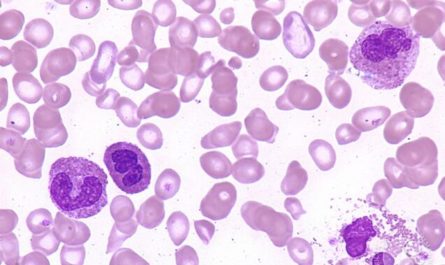
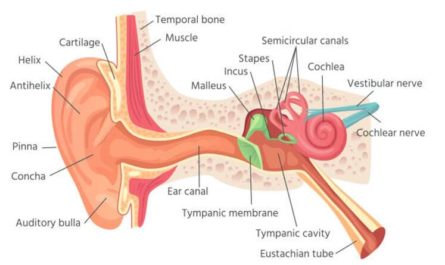
It’s really impossible to count the overall benefits of honey and aloe vera as they are helpful in treating almost every single skin and health issue naturally. Besides, I believe that herbal tea is the best remedy for tickle in throat.